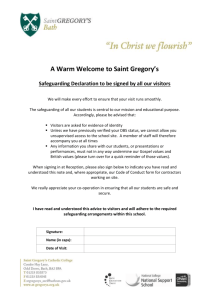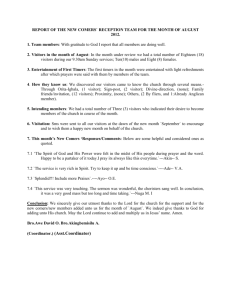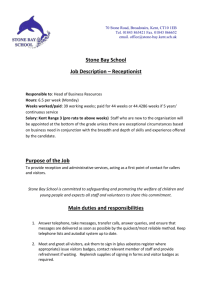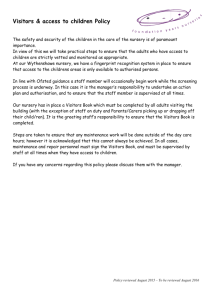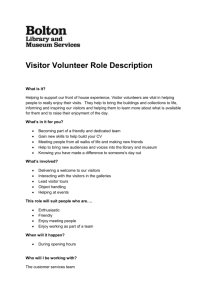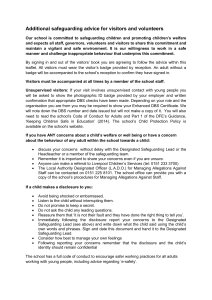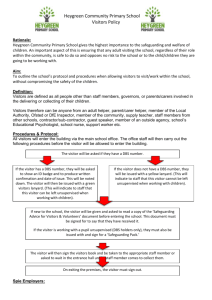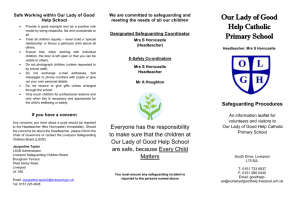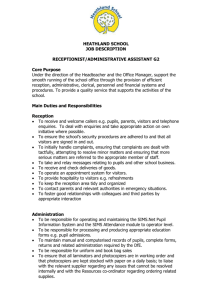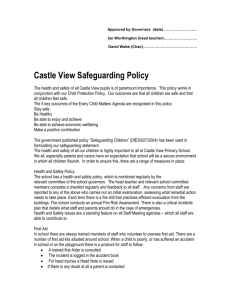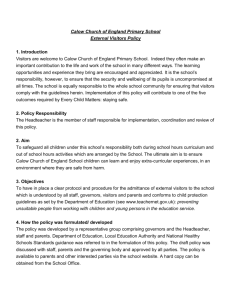HILLTOP JUNIOR SCHOOL SAFEGUARDING POLICY FOR
advertisement
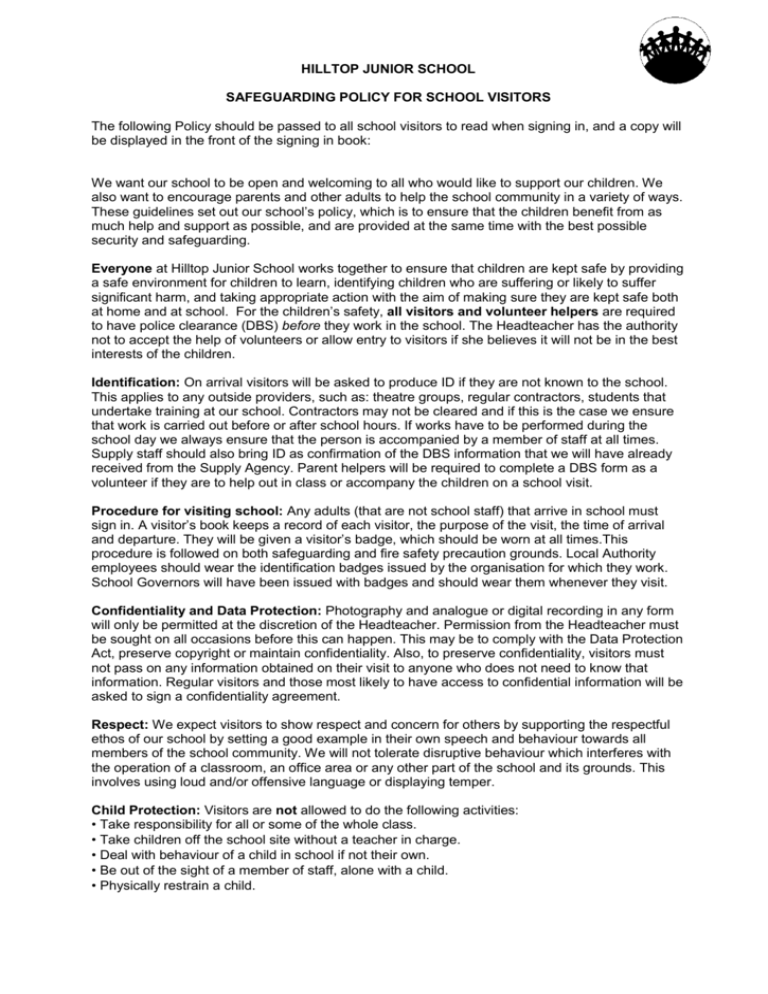
HILLTOP JUNIOR SCHOOL SAFEGUARDING POLICY FOR SCHOOL VISITORS The following Policy should be passed to all school visitors to read when signing in, and a copy will be displayed in the front of the signing in book: We want our school to be open and welcoming to all who would like to support our children. We also want to encourage parents and other adults to help the school community in a variety of ways. These guidelines set out our school’s policy, which is to ensure that the children benefit from as much help and support as possible, and are provided at the same time with the best possible security and safeguarding. Everyone at Hilltop Junior School works together to ensure that children are kept safe by providing a safe environment for children to learn, identifying children who are suffering or likely to suffer significant harm, and taking appropriate action with the aim of making sure they are kept safe both at home and at school. For the children’s safety, all visitors and volunteer helpers are required to have police clearance (DBS) before they work in the school. The Headteacher has the authority not to accept the help of volunteers or allow entry to visitors if she believes it will not be in the best interests of the children. Identification: On arrival visitors will be asked to produce ID if they are not known to the school. This applies to any outside providers, such as: theatre groups, regular contractors, students that undertake training at our school. Contractors may not be cleared and if this is the case we ensure that work is carried out before or after school hours. If works have to be performed during the school day we always ensure that the person is accompanied by a member of staff at all times. Supply staff should also bring ID as confirmation of the DBS information that we will have already received from the Supply Agency. Parent helpers will be required to complete a DBS form as a volunteer if they are to help out in class or accompany the children on a school visit. Procedure for visiting school: Any adults (that are not school staff) that arrive in school must sign in. A visitor’s book keeps a record of each visitor, the purpose of the visit, the time of arrival and departure. They will be given a visitor’s badge, which should be worn at all times.This procedure is followed on both safeguarding and fire safety precaution grounds. Local Authority employees should wear the identification badges issued by the organisation for which they work. School Governors will have been issued with badges and should wear them whenever they visit. Confidentiality and Data Protection: Photography and analogue or digital recording in any form will only be permitted at the discretion of the Headteacher. Permission from the Headteacher must be sought on all occasions before this can happen. This may be to comply with the Data Protection Act, preserve copyright or maintain confidentiality. Also, to preserve confidentiality, visitors must not pass on any information obtained on their visit to anyone who does not need to know that information. Regular visitors and those most likely to have access to confidential information will be asked to sign a confidentiality agreement. Respect: We expect visitors to show respect and concern for others by supporting the respectful ethos of our school by setting a good example in their own speech and behaviour towards all members of the school community. We will not tolerate disruptive behaviour which interferes with the operation of a classroom, an office area or any other part of the school and its grounds. This involves using loud and/or offensive language or displaying temper. Child Protection: Visitors are not allowed to do the following activities: • Take responsibility for all or some of the whole class. • Take children off the school site without a teacher in charge. • Deal with behaviour of a child in school if not their own. • Be out of the sight of a member of staff, alone with a child. • Physically restrain a child. If you think a child is in need because they are suffering or are likely to suffer significant harm you MUST: 1. Make a note of what you have seen or been told. 2. Don’t make assumptions, keep an open mind. 3. Do not question the child. 4. Don’t physically examine the child. 5. Never promise to keep secrets. 6. Be discreet - do not say anything that may place the child or yourself at risk. 7. Act quickly and share the information with the Designated Persons in the school. You can ask for them via the school office. They are: Designated Person – Mrs Alison Waite Headteacher If a concern is raised outside of school hours – Essex Social Care 0845 6061212 8. If the disclosure or your concern relates to a member of staff, this must, as soon as possible, be shared with the Designated Person and nothing should be said to the adult involved. KNOW YOUR PROCEDURES – THEY ARE YOUR BOUNDARIES, THEY ARE THERE TO PROTECT YOU AS MUCH AS TO PROTECT CHILDREN. October 2015
